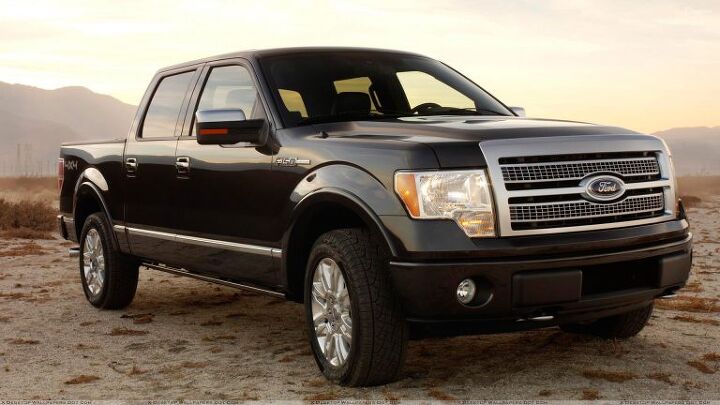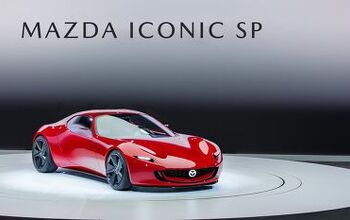Ford Backtracks After Giving Up Parts Search for Man's Seven-Year-Old F-150

Just because your vehicle is the most popular model in the world doesn’t mean there’s spare parts stashed in every storage room and broom closet.
The owner of one 2009 F-150 crew cab found this out the hard way, forcing him to turn to the media and consumer rights groups to keep his truck driveable after an extensive search for a replacement part turned up dry.
According to CBC, the owner — a detective with the Calgary Police Force in Alberta, Canada — initially failed to crack the case of the missing HVAC module.
Recently, his truck’s heater went haywire, blowing cold air into the driver’s side of the cabin and scorching air into the passenger side. The air sent to the passenger side is so hot, in fact, that a front seat passenger is out of the question. After visiting his dealership in search of a quick fix visited his dealership, Paul Rubner claims he was told the part is “obsolete and not available.”
Keep in mind, Rubner bought the best-selling vehicle at that dealership in 2009. With the dealer unable to help, Rubner called other Ford dealers. No dice, and no HVAC module. A search of aftermarket parts suppliers and used parts suppliers turned up empty.
Calgary’s weather is notoriously fickle, with wild temperature swings almost year-round. A properly functioning heater is a must. After contacting Ford Canada, Rubner received a reply stating that the part was “obsolete.” The company provided a list of other companies that might stock the part, but if not, he was out of luck.
“If you are not able to locate the part through these companies then there is nothing further that Ford of Canada can do for you,” the automaker reportedly stated in its email. That didn’t sit well with Rubner, who told the CBC, “I don’t think it’s unreasonable to expect a vehicle to last 10, 12, 15 years. Not seven.”
The part in question is Dash Control Unit which Ford Parts Canada lists as discontinued and unavailable. It was installed in V8-powered 2009 F-150s of various trim levels, equipped with dual-zone climate control, heated rear window, mirrors and seats, but with a seat cooler delete. That makes it a relatively low-volume item.
TTAC’s Bozi Tatarevic describes Rubner’s problem: “The issue that he is having is that the passenger side blend door actuator is shorting out. This causes the blend door to get stuck open when it should be closing. Since it is stuck open, the passenger side gets air that is flowing over the heater core. The shorting of the blend door actuator is caused by the HVAC module.”
When told about Rubner’s problem by the broadcaster, George Iny, director of Canada’s Automobile Protection Association, stated, “It’s not acceptable … for the largest-sold vehicle in the country to be an orphan or stranded, because a certain component can’t be sourced anymore.”
A reasonable amount of time to keep parts in stock would be 15 years, he said.
After the case drew attention from the media and consumer protection groups, Ford Canada realized it had a major PR issue on its hands. The automaker has since agreed to have a supplier build a one-off module specially for Rubner’s truck. With stereotypical Canadian politeness, Rubner thanks the company for making his truck driveable during winter, though he wishes it hadn’t cast him aside the first time he appealed for help.
We have to wonder if this is the only time Ford builds a bespoke replacement part for an F-150 owner, or just the first.
[Image: Ford Motor Company]

More by Steph Willems
Latest Car Reviews
Read moreLatest Product Reviews
Read moreRecent Comments
- ToolGuy If these guys opened a hotel outside Cincinnati I would go there to sleep, and to dream.
- ToolGuy Michelin's price increases mean that my relationship with them as a customer is not sustainable. 🙁
- Kwik_Shift_Pro4X I wonder if Fiat would pull off old world Italian charm full of well intentioned stereotypes.
- Chelsea I actually used to work for this guy
- SaulTigh Saw my first Cybertruck last weekend. Looked like a kit car...not an even panel to be seen.


































Comments
Join the conversation
They don't have junkyards in Canada?
This is nothing compared to the grief contained in a Volvo 850 HVAC system.